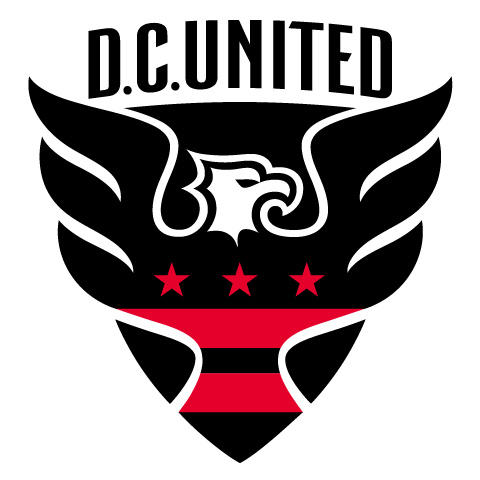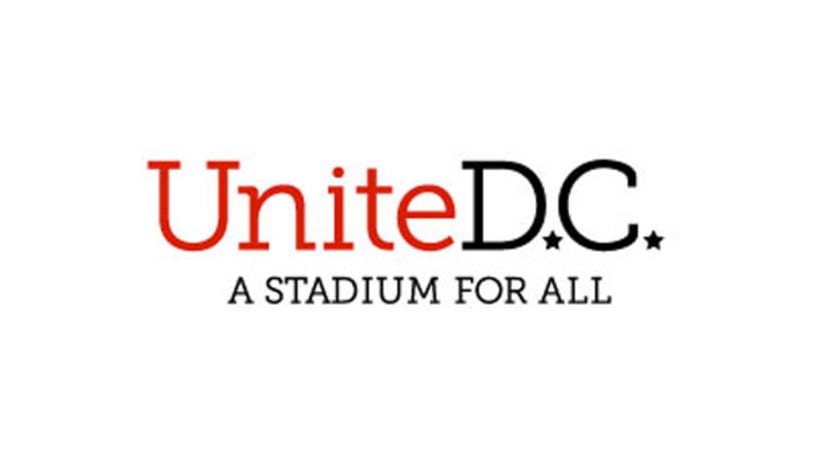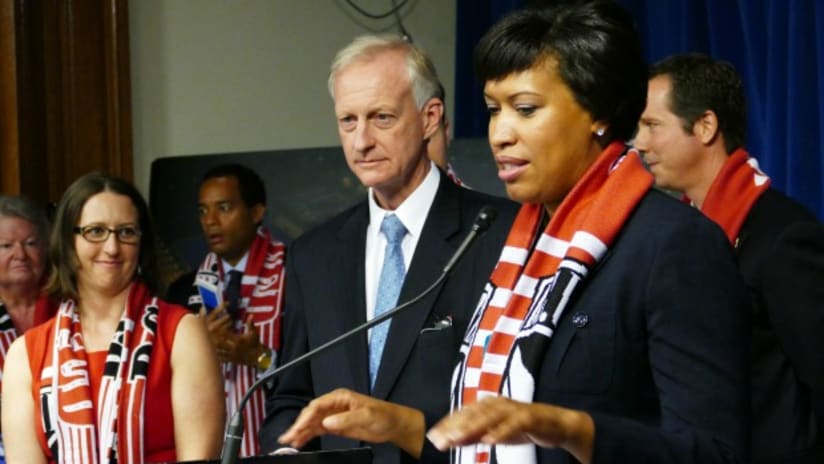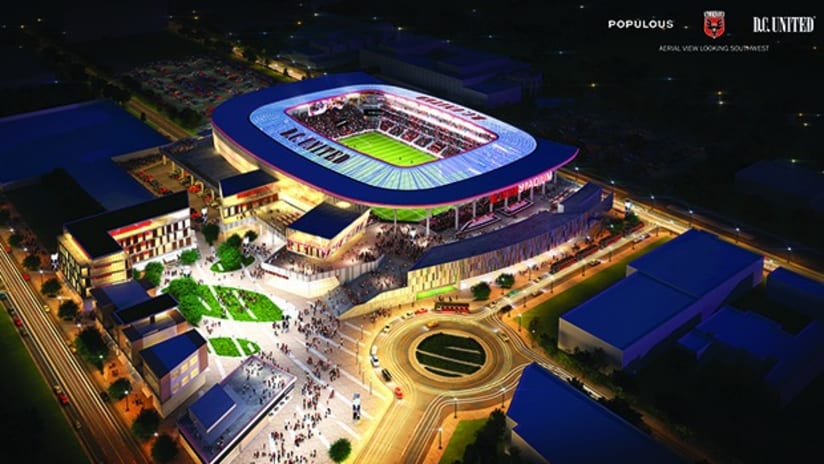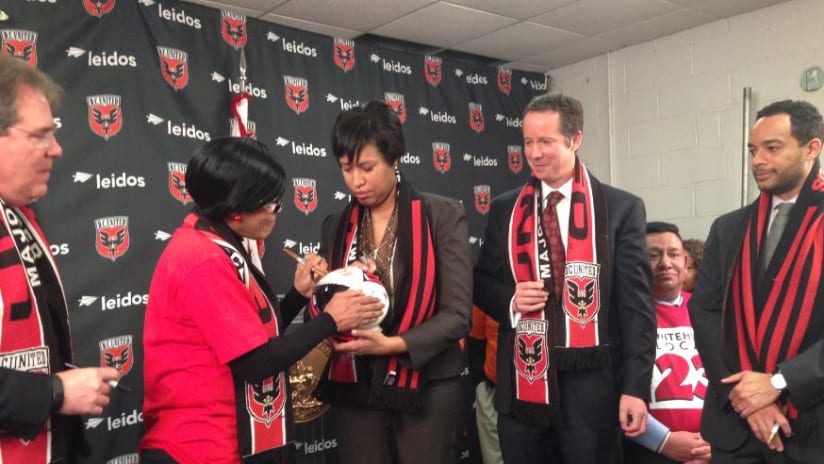The grassroots movement to support a proposed D.C. United stadium at Buzzard Point and associated District of Columbia development continues to grow. More than 3,000 residents across all eight wards of Washington, D.C., have sent more than 42,000 emails to the District of Columbia Mayor and Council members in less than four weeks since the movement was launched. This grassroots backing is on the heels of two recently released public polls that show more D.C. residents support the proposed plan than those who do not.
“The message is clear that more and more residents understand and support the details of the stadium proposal,” said D.C. United Chief Operating Officer Tom Hunt. “We are appreciative of all the District residents that have made their voices heard and who want to see the city move forward with this project.”
Two recent surveys show a plurality of support for the stadium plan. In a March poll commissioned by WAMU’s The Kojo Nnamdi Show and the Washington City Paper, District residents support a plan, by a margin of 49 percent to 44 percent, that at least calls for the District to assemble the land and prepare it for development (street lights, sidewalks, curbs, etc.) and for D.C. United to privately finance and construct the $150 million stadium.
In February, a poll funded by the D.C. Working Families coalition found that by a margin of 49 percent to 42 percent, likely Democratic primary voters supported the city’s plan for obtaining land for the stadium.
“We are ready and waiting to help fill the nearly 1,500 jobs this package will deliver with local people that need jobs today,” said Brent Booker, Secretary Treasurer of the National Building Trades. “For so many, a new stadium and the related development projects will mean a new opportunity to get back to work."
The current details of the proposal pave the way for a partnership that will transform Southwest Washington in the same way that Verizon Center reshaped and revitalized the Gallery Place neighborhood. The proposal will generate $387 million in new tax revenue, create 870 construction jobs and 550 permanent jobs. The District, which will lease the stadium site to D.C. United, will retain ownership of the land at the end of the lease period, at which point the property will likely be worth more than $700 million.
The new stadium will have many other uses besides professional soccer. It will host more than fifty events each year, including headline concerts, cultural events, school-age sports, college soccer, football, lacrosse, and more.
D.C. United increased its Major League Soccer-leading total to 13 championships last season by capturing the 2013 Lamar Hunt U.S. Open Cup. All of the emails sent by supporters have been sent through the website www.UniteDC.org.
